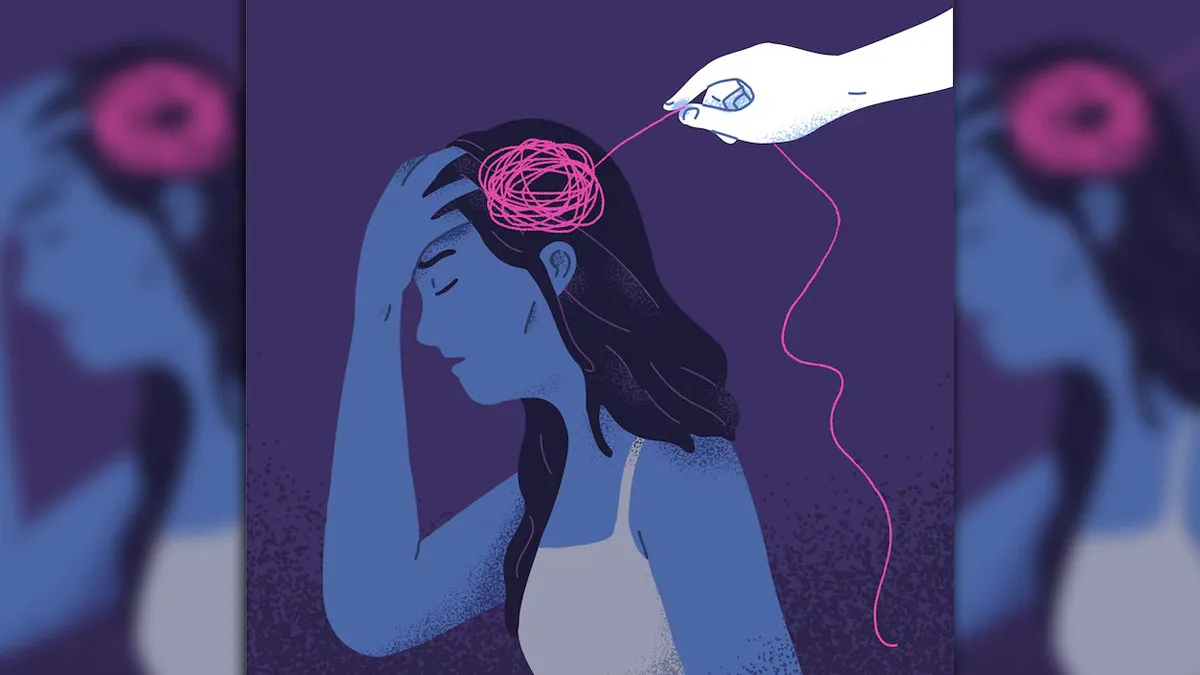
Have you ever found it hard to concentrate or recall things after a tough experience? That’s because trauma isn’t just about the pain or fear you feel in the moment; it lingers, quietly shaping your thoughts, memory, and focus long after the event has passed. Trauma can affect how our brains work in surprising ways, and understanding this connection is the first step to healing. We spoke to our expert Dr Raghu K, HOD and Senior Consultant - Psychiatry, Gleneagles BGS Hospital, Kengeri, Bengaluru, who explained how these changes happen and, most importantly, how recovery is always possible.
Table of Content:-
According to Psychiatry Research, experiencing trauma throughout one’s life, coupled with re-experiencing symptoms, has been linked to an increased risk of cognitive decline. On the other hand, lifetime trauma without re-experiencing symptoms appears to reduce the likelihood of developing dementia.
Understanding Trauma and Its Impact

- Acute Trauma: The result of a single event, such as an accident or natural disaster.
- Chronic Trauma: Resulting from extended exposure to stressors like abuse or neglect.
“The brain's response to trauma is complex, involving heightened stress responses, changes in neurotransmitter levels, and structural alterations in specific regions like the hippocampus, amygdala, and prefrontal cortex. These changes can influence memory, attention, decision-making, and emotional regulation over time,” said Dr Raghu.
Also Read: Abusive Head Trauma In Infants: Causes, Symptoms, Diagnosis, And Treatment
Cognitive Functions Most Affected by Trauma
Trauma can impair several key cognitive functions. Here are some listed by the expert:

- Memory: Trauma often impacts both short-term and long-term memory. Many individuals struggle with intrusive memories or memory gaps, particularly around the traumatic event.
- Attention and Concentration: Chronic stress from trauma can lead to difficulties in focusing or sustaining attention, affecting daily functioning.
- Executive Functioning: Trauma can impair problem-solving, decision-making, and planning abilities, which are vital for personal and professional success.
Biological Mechanisms at Play
Trauma triggers the body’s stress response system, with a significant impact on the “Hypothalamic-Pituitary-Adrenal (HPA) axis. Prolonged activation leads to excessive cortisol release, which can damage brain cells, particularly in the hippocampus, which is key to learning and memory,” added Dr Raghu.
During stress, the body releases elevated levels of cortisol, the primary stress hormone. While this response is initially protective, prolonged exposure to high cortisol levels may damage brain regions critical for cognitive functioning, as stated in a 2020 study.
Additionally, trauma often triggers inflammation, which can disrupt neural connections and contribute to cognitive decline. These physiological changes may persist long after the traumatic event has occurred, emphasising the importance of early intervention.
Also Read: Complex PTSD Self-Care Essentials For Success: Therapist Shares Tips
Trauma and Cognitive Decline in Ageing

There is a link between early-life trauma and a higher risk of developing cognitive disorders like dementia later in life. Trauma can set off a cascade of changes that make the brain more vulnerable to neurodegenerative diseases.
For example, individuals with Post-Traumatic Stress Disorder (PTSD) are often at higher risk of cognitive decline due to chronic stress, poor sleep, and comorbidities like depression and anxiety, which further exacerbate cognitive impairments.
The Role of Therapy and Rehabilitation

While the effects of trauma on cognition can be severe, they are not necessarily permanent. When it comes to addressing these challenges, therapy plays a crucial role:
- Cognitive Behavioral Therapy (CBT): Helps patients identify and change thought patterns that exacerbate cognitive difficulties.
- Trauma-Focused Therapy: Targets the root cause of trauma, helping individuals process their experiences and build resilience.
- Mindfulness-Based Interventions: Techniques, such as meditation and yoga can help regulate stress and improve focus.
The importance of lifestyle changes, such as regular exercise, proper sleep, and a balanced diet rich in brain-healthy nutrients, to counteract trauma-induced cognitive impairments.
Building Awareness and Seeking Help
Understanding the connection between trauma and cognitive function is crucial for early diagnosis and treatment. It is unfortunate that stigma often discourages people from seeking help. Recognising and addressing trauma is the crucial first step toward healing. Cognitive impairments shouldn’t be ignored, as they can affect every aspect of life, from relationships to work performance.
Bottomline
Dr Raghu concluded, “Trauma is not just an emotional wound; it has tangible effects on the brain and cognitive function. However, with the right interventions, recovery is possible. The importance of timely medical attention and therapeutic support, as well as creating a supportive environment for those affected by trauma. Cognitive health is vital, and taking proactive steps can pave the way for healing and resilience.”
[Disclaimer: This article contains information provided by an expert and is for informational purposes only. Hence, we advise you to consult your professional if you are dealing with any health issues to avoid complications.]
Also watch this video
How we keep this article up to date:
We work with experts and keep a close eye on the latest in health and wellness. Whenever there is a new research or helpful information, we update our articles with accurate and useful advice.
Current Version